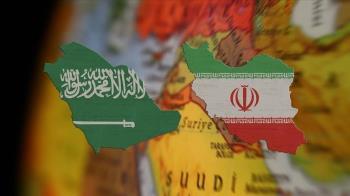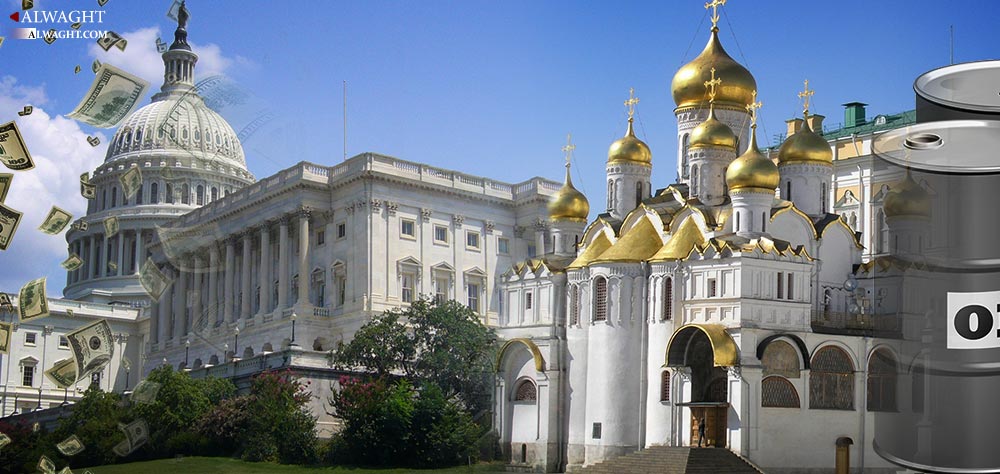Alwaght- The anti-Russian sanctions are becoming more and more a spirited debate in the US these days as every day starts with new charges against the Russian politicians and organizations accused of meddling in the American presidential election in 2016.
The first claims of Moscow’s election interference were made by the US Central Intelligence Agency (CIA) in December 2016, only a month after the presidential race ended with Donald Trump coming out as a winner. The CIA report maintained that the spying agency had detected people inside the US with links to the Russians. The CIA further claimed that the infiltrators had hacked thousands of emails from the Democratic National Committee and delivered them to the whistle-blower website WikiLeaks for global publishing.
Other charges ensued, accusing the son of Trump, Donald Trump Junior, and some of the people working for Trump's presidential campaign of connections to the Russians. This wave of accusations led to formation of a special investigation body to probe into the case. But Trump vehemently denied the accusations, arguing that there was a plot underway against him and his family members.
As of yet, the probe committee has not managed, as Trump’s Democratic rivals are zealously expecting, to come out with clues to substantiate that Trump’s team colluded with the Russians to help beat the rival Hillary Clinton, something that if happens will pave the way for ensuing anti-Trump motions including his impeachment and even disqualification. However, they have been greatly successful in preventing improvement of the relationship between Kremlin and White House as Trump promised to work toward during his campaign.
The Congress over the past year of Trump’s presidency has imposed a set of sanctions against Moscow. In a very latest case, on February 16 the Federal Bureau of Investigation accused 13 Russian citizens as well as 3 state organizations of intervening in the 2016 presidential race. Moscow officials have denied the allegations altogether, stressing that they are meant to cultivate an atmosphere of Russophobia among Americans.
Generally, goals behind the US anti-Russia moves can be explained as checking potential meddling of Russia in the future American and European elections; putting political and economic pressure on Russia to beat it in other fields of rivalry like Ukraine, Syria, and Korean Peninsula crises; as well as curbing Russia's dominance ambitions in Eastern Europe.
The Russian President Vladimir Putin's approach towards world order that totally is at variance with that of the West makes it impossible for the two to fully agree or even reach a mutual understanding of the essential security issues. This has reflected also on Trump’s plans for intimacy to Kremlin. The American president not only failed to accomplish his pledge of building closer relations with Putin but also was compelled to issue three doctrinal documents on national security, nuclear weapons use, and national defense, deeming Russia to be one of the major threats to the American interests and potentials of strategic success. Under the American approach to Moscow, tackling the Putin's Russia as a “revisionist” power beside China, as the national security doctrine suggests, is possible only if the West shows readiness to face the serious repercussions and pay the prices originating from the escalation of tensions with Russians.
It appears that the American strategists’ assumption of the viability of the sanctions comes while oil prices are low and Russia desperately needs to export its products to keep its economy going well. The West expects its embargo can hamper Russia's economic reforms and modernization of the economy and military and at the end of the road come result it public discontentment. Such an outcome, the Western policymakers hope, could make the profoundly strong position of Putin waver as he heads to the presidential election, set for May. So, one of the aims of the American institutions' ongoing pressing of Moscow has to do with the upcoming election to strengthen Putin's rivals.
Seeing their economy heavily damaged by the massive sanctions that followed the Ukrainian crisis and annexation of Crimea Peninsula, Russians quickly sought alternatives to their former European business partners to ease the effects of the Western ban. Expanding business relations with East Asia has been an option. Russians also relied on their technological capabilities in oil and gas sectors to launch joint projects with the oil-rich West Asian nations.
Russian investors have approached Saudi Aramco with a proposal to directly take a stake as the oil giant gears up for an initial public offering (IPO) later this year. The potential deal is so significant that some compare it to the Qunicy agreement of February 1945 between the US President Franklin Roosevelt and King Abdulaziz, the founder of the Saudi kingdom. If Russia successes to work with Saudis on such a huge energy deal the American-led sanctions on Moscow will partially lose their effects.
On the other side, in August and November 2017, Russia's Rosneft and Iran's NIOC agreed to team up on gas and oil projects worth $30 billion. At the same time, Moscow is setting eyes on the African energy investment market. On Thursday, Russia's ambassador to Cameroon, Anatoly Bashkin, has reiterated his country's interest in Cameroon's oil and gas sector.
While the US and European ties are experiencing some chill over a set of international issues, Russia’s Putin is making moves to restore the relationship with Europe's top powers France and Germany. Talking at the Munich Security Conference following a meeting with Russian Foreign Minister Sergey Lavrov, the German Foreign Minister Sigmar Gabriel said on Saturday that Berlin is seeking to see European Union ties with Russia improved.
“The gradual lifting of sanctions against Russia may start if the Moscow-backed plan to deploy UN peacekeepers in the conflict area of eastern Ukraine is implemented,” the top German diplomat told the audience at the annual MSC meeting.
Putin, holding a meeting with the Russian unions of workers and contractors on February 9, asserted that those who impose sanctions on Russia will soon see themselves damaged. In fact, the significant factor that helps Russia to survive is its distinctive diplomacy. While Washington seeks interests in regional crises and conflicts as a traditional policy, Moscow concentrates on productive cooperation with other parties.



























